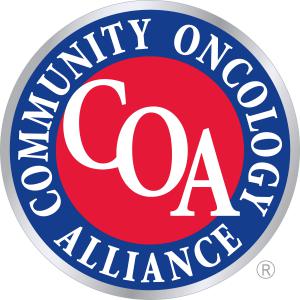Community Oncology Alliance Submits Comments on Proposed 2022 Medicare Hospital Rule
Biden administration is right to address hospital transparency non-compliance and the flawed 340B program, but Radiation Oncology Model launch is dangerous
WASHINGTON, D.C, UNITED STATES, September 17, 2021 /EINPresswire.com/ -- The Community Oncology Alliance (COA) submitted formal comments to the Centers for Medicare & Medicaid Services (CMS) for the proposed 2022 Medicare Hospital Outpatient Prospective Payment System (OPPS). In the letter, COA expressed support for provisions that would strengthen existing hospital price transparency regulations and continued reforms to the 340B Drug Pricing Program. Additionally, COA continued to push back against the planned Radiation Oncology (RO) Model, noting its opposition to mandatory government models, especially during a public health emergency (PHE) that could irreparably damage cancer care providers’ ability to care for patients.Read COA’s full comment letter to CMS on the 2022 OPPS proposed rule here.
Beginning this year, CMS implemented new regulations requiring hospitals to publish “machine-readable files” with prices for all items and services by payer source, both insurers and cash-paying patients. Since taking effect, numerous studies have found the vast majority of hospitals are not in compliance with this rule, with a recent study published in the Journal of the American Medical Association finding 83 percent of randomly selected hospitals failing to meet requirements.
COA strongly supports the CMS proposals to ensure that pricing information is available in an easy to access and read format and to set higher minimum civil monetary penalties for large hospitals who apparently consider the current small fine of $300 a day simply the cost of not having to report how they price drugs and services.
The letter also notes that although COA supports the current drug reimbursement rate of average sales price (ASP) minus 22.5 percent for 340B hospitals, it encourages a further reduction in the payment rate to reflect the magnitude of 340B discounts in order to curb abuse of the program. COA calls for the 304B program to be reformed so that the discounts directly benefit patients in need and are not simply pocketed as profits by hospitals. A new report from Moto Bioadvisors indicates that, on average, 340B hospitals are pricing drugs at 3.8 times their discounted acquisition costs and do not appear to be passing on discounts to patients who are uninsured or paying cash. The program has clearly become a lucrative enterprise for so-called “non-profit” hospitals. COA strongly supports the original intent of the 340B program to help disadvantaged patients afford their necessary medicine; however, the current program has been co-opted and corrupted by bad hospital actors and is in desperate need of reform.
The OPPS comment letter also reiterates COA’s opposition to the implementation of the mandatory Radiation Oncology Model on January 1, 2022. As stated in our preliminary comment letter on the RO Model, mandatory models stand in stark opposition to the original congressional intent and statutory boundaries for the Center for Medicare and Medicaid Innovation (CMMI), which was founded to first pilot the feasibility of novel ideas on a small population. Forcing nearly a third of the country’s community oncology providers to take part in the RO Model without their consent risks decreased care quality and increased care costs.
Notwithstanding the RO Model’s intent, forging ahead with the January 1, 2022 implementation date during the ongoing COVID-19 pandemic is a recipe for disaster. COA is urging CMS to enact its own proposed Extreme and Uncontrollable Circumstances (EUC) policy and push back implementation and actually listen to stakeholder input. The COVID-19 pandemic continues to strain providers across the country and asking them to divert resources away from the safety and treatment of their patients is dangerous and misguided. An EUC policy allows the RO Model to be pushed back one year due to “a circumstance that is beyond the control of one or more RO participants, adversely impacts such RO participants’ ability to deliver care in accordance with the RO Model’s requirements, and affects an entire region or locale.” Pushing the RO Model back is the commonsense action to take as the COVID-19 Delta variant strains health care resources and providers around the country.
Read COA’s full 2022 OPPS comment letter at https://communityoncology.org/coa-cy-2022-opps-comment-letter/ .
Nicolas Ferreyros
Community Oncology Alliance (COA)
info@coacancer.org
Visit us on social media:
Facebook
Twitter
LinkedIn
Legal Disclaimer:
EIN Presswire provides this news content "as is" without warranty of any kind. We do not accept any responsibility or liability for the accuracy, content, images, videos, licenses, completeness, legality, or reliability of the information contained in this article. If you have any complaints or copyright issues related to this article, kindly contact the author above.

